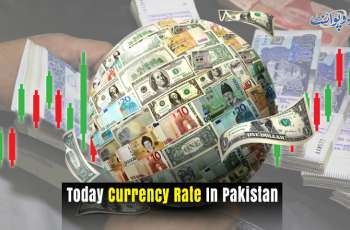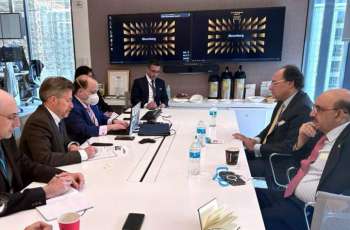MOSCOW (Pakistan Point News / Sputnik - 02nd December, 2020) The 2021 budget of the Organization for the Prohibition of Chemical Weapons (OPCW) was approved in The Hague during the second round of the 25th Conference of the State Parties (CSP) on Tuesday, with delegations from 14 states voting against and 13 abstaining.
OPCW Chairman Fernando Arias highlighted four areas of disagreement that prevented the delegates from the organization's 193 member states from reaching a consensus.
"On the basis of statements made yesterday in plenary, it was possible for me to identify four main areas of disagreement... first; the financing of the Investigation and Identification Team, second; the format used to present the draft budget, third; the application of surpluses from previous years, and lastly, the negative trend in the allocation of funds to international cooperation and assistance," Arias stated.
These points were discussed by delegates from countries that voted against the adoption of the organization's latest budget, in addition to delegates from 5 of the countries abstaining and one of the countries who had voted in favor, with concerns for the organization's neutrality and inclusiveness voiced by the representatives of Iran, China, Russia, Pakistan, India, Cuba, Palestine, Venezuela, Bangladesh and Laos.
In addition to the politicized nature of the Investigation and Identification Team (IIT), the omnibus format of the latest draft budget was the subject of criticism, with the heads of several delegations speaking out against the practice. Russian Permanent Representative to the OPCW Alexander Shulgin decried the format as effectively imposing the funding of the IIT on the organization's member states.
"Here we're talking mainly about the ways of trying to bring everything together, and to push certain things through with the regular budget, certain expenses that have absolutely nothing to do with implementing the convention. And in particular, forcing and imposing on states against their will, financial implications having to do with the illegitimate work of the attribution mechanism," Shulgin said.
Regarded by a number of OPCW member states as a politically motivated mechanism, the legitimacy of the IIT was the subject of controversy since its inception to investigate the alleged use of chemical weapons by loyalist forces in the Syrian city of Douma in 2018, with the omnibus format of the organization's draft budgets guaranteeing its funding.



